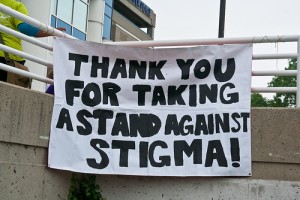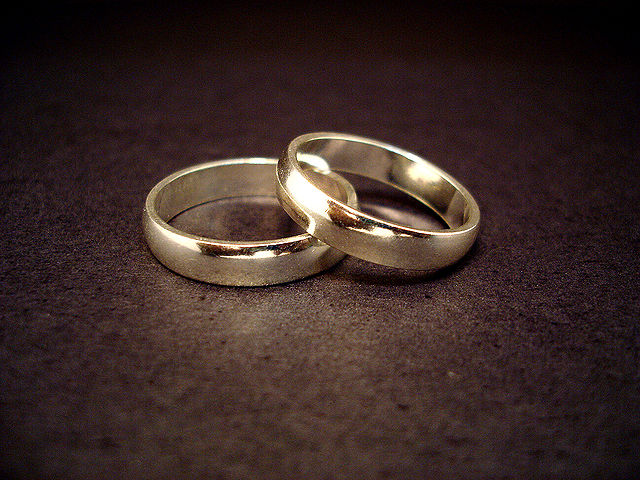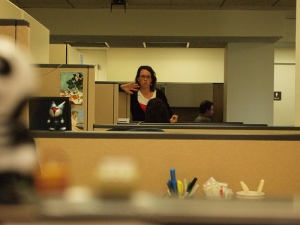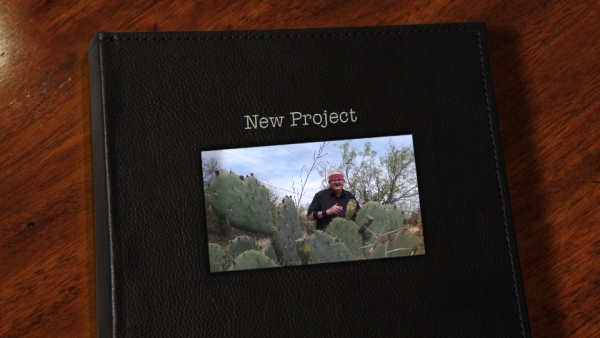Guest Post: Brenda’s Bipolar Journey
Brenda Nikkel sent me this story last week about her experiences with bipolar disorder, and I thought that it was very personal, insightful and moving. She gave me permission to publish it under her name. Please enjoy. -Daniel
Hello, my name is Brenda.
A Little Bit About Myself
What I am about to discuss and share with you is my journey living with mental illness. My diagnosis is that I have a mood disorder, bipolar 2, where you suffer more from depression rather than highs or manic states. I also suffer from rapid cycling. No, this does not mean that I can ride a bike very quickly. What it does mean is that you will suffer four or more episodes (depression/mania) within a one year period. And last but not least I suffer from mixed type, this means you could have up to several episodes in one day. Not bad, I scored a hat trick or whichever way you want to look at it!
I am 52 years old and I have one child, a daughter, who is 26 years old and a wonderful husband whom I have been with for over 11 years.
The Stigma Behind the Disorder

Source: stevendepolo - CC BY 2.0
It certainly doesn’t help that, not only are we dealing with these disorders, but statistics show that a large number of people with these disorders also suffer with drug and alcohol abuse. Now sufferers of mental illness have yet another stigma to contend with and additional issues to overcome.
Statistics: One source I found showed that 30% of cocaine addicts fit criteria for bipolar disorder.
It goes on to say that 30-60% of those with bipolar disorder (manic depression) also struggle with alcoholism or substance abuse perhaps in an attempt to self-medicate. 60% of those with bipolar disorder struggle with alcohol and drug abuse. Source
It’s All Part Of The Journey
Many of us fit the description or know a family member or friend that suffer from one or more of these disorders.
My disorders have had an effect on:
- My work
- Relationships
- Family
- Losses
- Day-to-day functioning
Breaking the Cycle
The journey that I am currently embarking on is to break the cycle of feeling ashamed and letting my illness have control over me. I am taking on the responsibility to be a full participant in my illness and my recovery. And along with that I’m trying in my way to break the stigma of mental illness.
When Did It Start?
I started suffering from depression in my late teens and took the prescribed medications and never gave it a second thought. I went well over twenty years without being properly diagnosed. It took me this long to face my demons. I know that I was in denial because of my family history. When I look back at my life all of the signs were there but I just chose to turn a blind eye.
Ignoring The Symptoms
Some of the symptoms I experienced were frequent changes from one job to another. I was a very successful consultant in the I.T. world and not only did I blow away my career but I blew a lot of money along the road. This went on for over a 2-3 year period until finally I burnt out. I went into debt and ultimately I had to file bankruptcy.
My biggest regrets are that I didn’t take care of myself earlier. But this, unfortunately, is part of this disease. You can easily fool yourself that you are ok, remember I was in denial.When I was first diagnosed I did not take my diagnosis seriously. I did not participate in the in-patient group therapy. I refused to share my thoughts and issues with the nurses and my psychiatrist. I continued with all of my bad habits, drinking, not exercising, poor diet and having people in my life that were either enablers or were not supportive.
This behavior went on for the next couple of years and then I had yet another lapse. I was hospitalized in 2009 and during this time I turned my thought process around completely. I was tired and I had had enough. I had enough putting my family through this. I had enough of not understanding what was really wrong with me and more importantly I did not want to become a suicide statistic from these disorders.
I finally decided to participate in my healing and recovery. I started to respect my diagnosis by participating in any or all of the in-patient therapy that was offered. I made a point and a concerted effort to talk to the nurses as much as I could, shared all of my thoughts and demons with my psychiatrist.
Isn’t Being Bipolar Enough?
Unfortunately, with bipolar disorder sufferers we generally have additional problems to deal with on top of our mood disorders. This may come in the form of destructive behavior, alcohol abuse, drug dependency with street drugs as well as prescribed drugs. Additional maladies when in a manic state sufferers also deal with unusual behavior, suicidal thoughts, spending money we don’t really have, promiscuous sex, drastic mood swings to name but a few, often resulting in the end of relationships.
How Has This Disorder Affected My Family
Of the five children four of us suffer from mental illness, ranging from mood disorders, manic depression, borderline personality, bipolar 1 and 2 to paranoid schizophrenia. In addition, my mother also suffers from manic depression and bipolar disorder. Not wanting to leave anyone out, recently another family member was diagnosed with bipolar 2. We are a blast at a party I can tell you that much! Hell, we now have the makings of a baseball team!
A year after my brother’s death I nearly lost my second eldest brother. He was never able to get over the death of our younger brother. Just like my younger brother he also battled alcoholism since his late teens, however, I can say today he is a success story. He is rising above his afflictions with pride and humility. Fortunately, we were able to seek help for him rather quickly. I am very happy to announce that today he is well on his way to recovery.
Importance of Positive Family and Friends
I am fortunate to have a very loving and healthy relationship with my daughter and my husband. I never thought it could get any stronger but we managed to stick together. I attribute our healthy relationship due to open communication, having my husband attend my doctor’s appointments so he would have a voice in a safe environment to share his thoughts and concerns. He also attended some of my out-patient group therapy sessions. Through these actions and his support we have become closer than ever.Becoming A Participant In Your Disorder
Demand the help you need to assist you with a healthy recovery. You can only be successful if you are open with your doctors, therapists and care givers. They are not mind readers. Tell them everything. It’s difficult at first but then you will start to see and experience positive changes in your life.
In fact, when I am somewhat stable I embrace my good health. I’m sure I’m known as the crazy lady of the neighborhood. When I go for my walks in the neighborhood, iPod on, I will sing out loud and just enjoy the scenery. It’s fun, cathartic and it helps with my anxiety. Yes, I have gotten some odd stares but I don’t care. I’m well and feeling good. Head held high! My point, don’t forget to have fun!
How Am I Doing Today
Since my last stay in the hospital I have been doing very well. I do have my ups and downs but I am using the tools that I was taught during out-patient therapy I reached out to health-care professionals to help me through those dark days. I am listening to myself a lot more and I now know how to set boundaries and determine my limits. I’ve learned how to say no. I try as best I can to avoid stressful situations and if I cannot avoid them I deal with them.
No Shame
It is so important to surround your life with supportive friends and family and let go of those that are not a support. I have been very open with my friends about my disorders and I talk to them whenever I feel the need. I try to educate them in the best way that I know how. I answer all of their questions and share my highs and lows. To be able to be this open about my disorders with my friends shows me how fortunate I am to have them in my life. With them I never feel shame and I never feel judged.
Without the support of my family, friends and doctors I know for a fact that I would not be standing in front of you today.
Don’t Be Afraid – Ask For Help
If I can impart one important point is don’t be afraid to ask for help. I now know that was one of my biggest hurdles: not asking for help. I was the family member and friend that took care of everyone but myself. I was the one who always took control of a bad situation, made it my problem and wouldn’t let it go until the problem was solved.
I am by nature a caregiver. So to have to say “no,” or to recognize that I can’t do some things has been a hard lesson to learn but it has been a good one and one of the most healthy things that I have accomplished. A structured day program with an individual therapist will assist you to take care of these issues.
Different Methods to Take Control
I journal whenever I can. I found sharing my journal with my husband very useful because prior to our being together he had no experience with dealing with someone with any kind of depression let alone my disorders. So, the poor guy really didn‘t know what he was getting himself into!I am also proud of myself on how I am educating myself as much as I can about my illness. My mantra and model is “knowledge is power.”
I have shared with you the ups and downs and the experiences that I have been faced with. It hasn’t been easy but sometimes that is the way life is. You deal with the cards that are handed to you. I am proud of myself and my family because after all that we have endured we are coming out as survivors. I have hope and love in my future and that is why I wanted to share my story. We are all worthy and important enough to receive the same gifts.
Final Reminders
You cannot do this on your own:
- Admit to your illness then ask for help.
- Get support. The right people, the ones that will help you.
- Talk about it. Talking will assist in getting rid of the stigma of mental illness and will be cathartic for you.
- People do not know when you are down or high and why…tell them. You can trust certain people, do that. You know who you can trust, trust them and follow them, they will not steer you wrong, again, give up the ones you cannot trust.
- Listen & learn.
- Adapt and change.
- Change doctors if you feel that you are not getting the proper care to assist you with your healing and recovery. Be proactive, you are in control of your well being with the help of your friends and family that you trust.
- Attend any programs that will provide the tools that you require to help you with your recovery. Those could be in-patient or out-patient programs.
Lifestyle changes
- May mean embarking on a new career
- Diet – Some of the meds we are prescribed may cause weight gain.
- Exercise – again, due to our meds.
- With a change in your diet and including exercise it will also boost your mood and assist with the weight gain from the medication you may be taking.
- Avoid stress wherever possible.
- And more importantly avoid people that suck the life out of you or are toxic. With the help of family and friends and professionals you can block out the monsters.
- Learn to recognize the unhealthy triggers and how you may avoid getting into unhealthy behaviour and situations.
There is a saying in a pamphlet that spoke about mood disorders that I read and it really resonated with me.
It said, “Blessed are the cracked for they let the light shine through.”
It’s true, we do let the light shine through even if we are a little broken.












Hi Brenda,
thank you for sharing your “life’s story” with us today. I wish you all the best for the future.
Rita
Thank you for your comments and reading about my journey.
I am also on two other websites and I have provided you with the links. You may find these blogs interesting as well. Enjoy!
Best Regards,
Brenda
http://www.dimitralee.com/bipolar.html
http://mentalhealthtalk.info/laughter-best-medicine.
What a frank, concise and articulate description of a journey I am more than passing familiar with myself…
I particularly liked your ability to be serious, as opposed to dramatic, about what’s important as well as the way you describe and respond to the idea of being “the crazy lady”.
That resonated with me because music means a lot to me and I sing along too. I decided a few years ago that if people could walk down the street talking away to their invisible friend, then I could sing!
Good luck on the journey.
all the best,
dugg
Hi, thank you for sharing your frank and honest story – it echos my own life in so many, many ways. We need more people with mental health issues to speak out in an attempt to try to stop the stigma which some people still attach to mental illnesses – I may put my husbands underpants on my head and stick pencils up my nose on occasions, but I am a kind hearted, genuine nutty person ;)!
One thing I would like to ask is why some people refer to bipolar as a disease? When I think of disease I think of cholera or legionnaires disease or some sort of horrific plague that you catch from someone else or bad sanitation!
Once again, thanks for sharing and very best wishes in your healing journey x
I have suffered mood swings for years and depression I don’t take kindly to change and struggle to cope with day to day things when I feel at a
all time low it also affect’s my faith.
I also am a loner with no friends I never kept a job for long and could only manage to work part time………
I have a under active typhoid gland…..
I also get the spending bug it makes me feel better at the time but ever so guilty afterwards.
The doctor has always just put me on depressants thinking that this
will sort things out I never had a proper diagnosis, i DON’T KNOW WHERE TO GET PROPER HELP i am so desperate to get my life sorted My mother as had it all her life my brother also suffers from manic depression too please can you help me…..
Hi Rosalind, I’d suggest talking to your GP about the kind of helps available. A doctor can usually refer you to a psychiatrist for a diagnosis. I’ve got an article about ways of getting a diagnosis here.